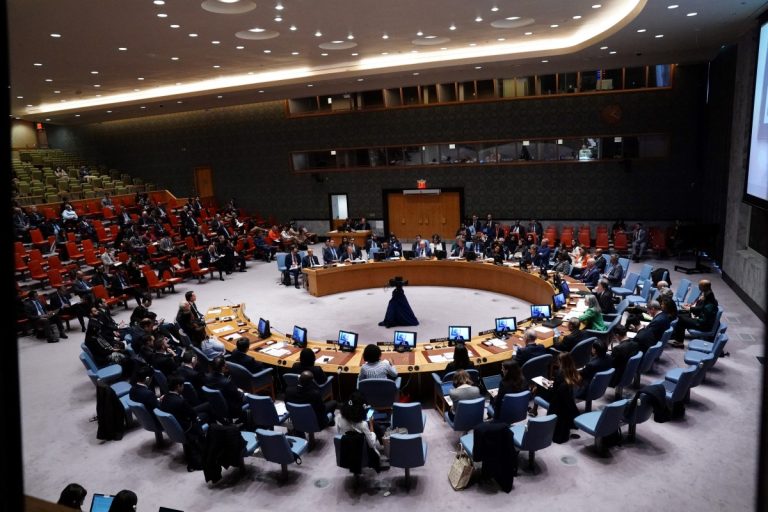Brasília – Despite votes in favor by 12 members of the United Nations Security Council (UNSC), a United States veto prevented the approval of a resolution proposal presented by the Brazilian government this Wednesday (18) regarding the conflict involving Israel and the Palestinian group Hamas in the Gaza Strip. The text called for humanitarian pauses in attacks between Israel and Hamas to allow aid to enter the Gaza Strip region.
The result of the voting was 12 in favor, two abstentions, including one by Russia, and one vote against by the United States. As it is a permanent member, the North American vote resulted in the veto of the Brazilian resolution. The voting of the resolution at the entity’s headquarters in New York was initially scheduled for earlier this week but was postponed until this Wednesday. Pictured above, this Wednesday’s meeting.
In Brasília, the Minister of Foreign Affairs, Mauro Vieira, explained Brazil, as president of the UNSC, was asked by the majority of the council’s members to draft a resolution to accommodate the opinions of all members.
“After intense and multiple consultations, we presented a text 12 of the 15 members approved. The text basically focused on the cease of hostilities, on the humanitarian aspect, creating a humanitarian passage so that third-party nationals, like our 32 Brazilians, could leave, and also establishing the possibility of sending humanitarian aid. Unfortunately, it was not possible to approve. There was a clear division of opinions,” he said.
Background
The UNSC has five permanent members: China, France, Russia, the United Kingdom, and the United States. Albania, Brazil, Ecuador, Gabon, Ghana, Japan, Malta, Mozambique, Switzerland, and the United Arab Emirates are currently part of the rotating council. To be adopted, a resolution needs the approval of at least nine of the 15 members and no veto by the permanent members.
After the vote, the US’s Ambassador to the UN, Linda Thomas-Greenfield, recalled that US president Joe Biden is currently in the region of conflict, which, according to her, demonstrates the country’s involvement in the matter. “Although we recognize the Brazilian government’s desire to approve the resolution, we believe that we need to let this diplomacy happen.”
Translated by Elúsio Brasileiro




